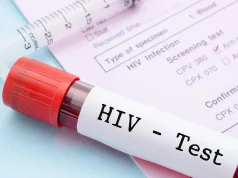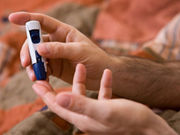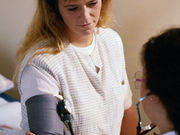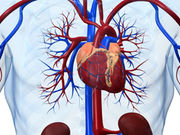Increased Heart Rate in Response to Viewing Hockey Games
Viewing live game equivalent to vigorous physical stress; televised game equivalent to moderate stress
Addition of DPP4i to AGI Reduces HbA1c in T2DM
Greater drop in HbA1c with DPP4i added to alpha glucosidase inhibitor, with no increase in weight
Post-MI, One in Four Detached From Employment After 1 Year
Heart failure, diabetes mellitus, and depression are significant predictors of detachment
Night Shift Tied to Increased Odds of Abdominal Obesity
Increased risk for permanent night workers compared with rotating night workers
Mid-Adulthood HTN Tied to Higher Dementia Risk in Women
Midlife onset of hypertension predicts 73 percent higher dementia risk versus stable normotension
Obesity Screening Recommended for Midlife Women
PCPs should address barriers to adoption of healthy lifestyle measures in postmenopausal women
Health Literacy Linked to Length of Stay After Abdominal Surgery
No significant correlation with increased rates of 30-day ER visits or 90-day hospital readmissions
Reasons Physicians Are Delaying Retirement Vary
Many older physicians feel that they are providing a useful service, desire part-time or occasional work
21 Percent of Americans Report Experiencing a Medical Error
Survey results show patients and families feel some responsibility for patient safety
Medicare Paid $1.5 Billion to Replace Faulty Heart Devices
Reasons for replacement included recalls, premature failures, medically necessary upgrades, infections



















